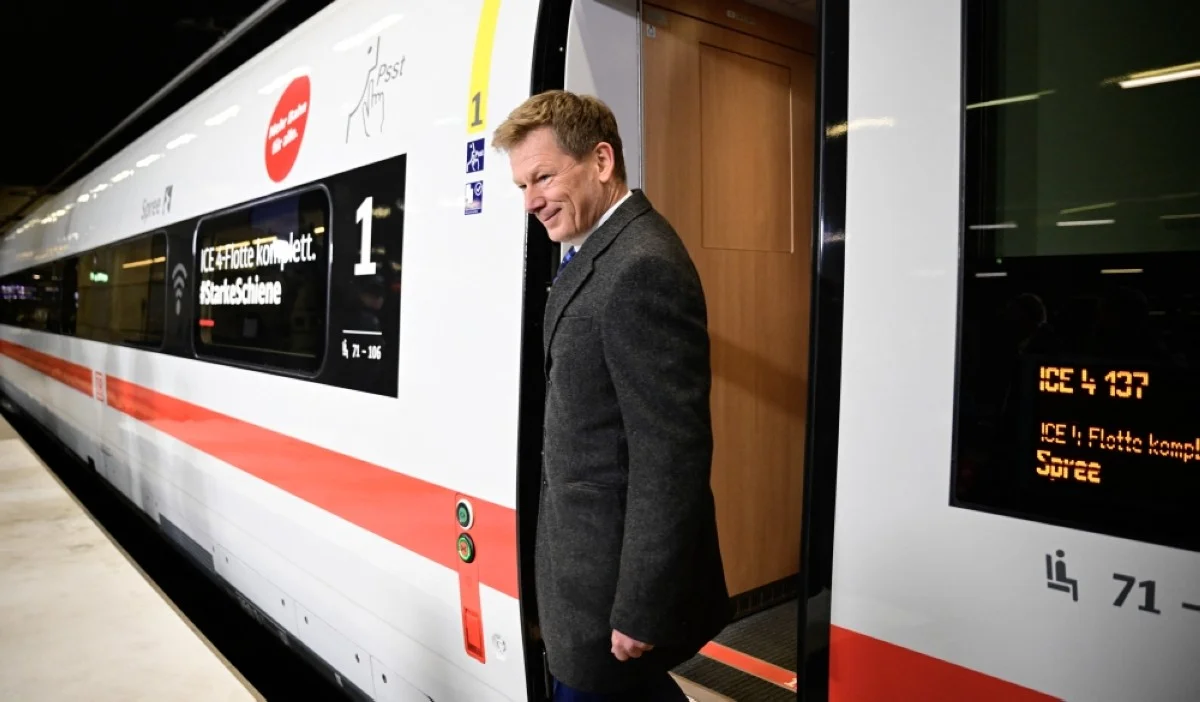FRANKFURT: German rail operator Deutsche Bahn said Tuesday it had agreed with the GDL union to shorten train drivers’ working week, ending a months-long row that caused strikes across the country. “It was a difficult road,” Deutsche Bahn’s human resources director Martin Seiler told a press conference. “But in the end we were able to reach an intelligent compromise.”
Under the terms of the agreement, the standard working week will be gradually shortened from 38 hours to 35 hours by 2029 with no loss in wages, Deutsche Bahn said. But train drivers will have the option of working longer hours, up to 40 per week, at 2.7 percent more salary per additional hour. “Our colleagues can decide for themselves which weekly working hours suit them and their lifestyle best,” Seiler said.
He called it a “modern” solution that would bring “flexibility” to the profession, at a time when Germany is grappling with a shortage of skilled labor. As part of the deal, all workers will also receive a wage hike of 420 euros ($455) per month in two stages and a one-off payment of 2,850 euros to help compensate for inflation.
The agreement brings an end to a bitter dispute between the operator and the GDL union which led to six rounds of walkouts since November 2023, causing travel misery for thousands of passengers. The deal will run until the end of 2025 and both sides have ruled out any further strike action for nearly two years. “The good news is that there will be no rail strikes until at least the end of February 2026,” Seiler said.
Germany, Europe’s largest economy, has been affected by strikes in a wide range of sectors in recent months, including air travel, public transport, the civil service and supermarkets. Pinched by inflation over recent following the war in Ukraine and the coronavirus pandemic, workers are demanding higher wages to cope with shrinking purchasing power. The strikes added to an already gloomy economic picture, with the German economy shrinking 0.3 percent across the whole of last year. Deutsche Bahn, which made a net loss of 2.35 billion euros in 2023, said last year’s walkouts alone cost it some 200 million euros.
Meanwhile, German consumer sentiment is set to edge up for a second straight month in April but the pace of the recovery remains sluggish, a key survey said Tuesday. Pollster GfK said its forward-looking survey of some 2,000 people nudged up by 1.4 points to minus 27.4 points for April, after recording a modest increase a month earlier. While respondents’ income expectations rose and they felt slightly less pessimistic about the outlook for Europe’s top economy than a month ago, the willingness to make large purchases remained stuck at a low level.
“The recovery of the consumer climate is progressing slowly and very sluggishly,” said Rolf Buerkl, consumer expert at the Nuremberg Institute for Market Decisions (NIM) which publishes the survey together with the GfK. Rising wages and a robust labor market were “very good pre-conditions” for boosting consumption, he said, but “a high level of uncertainty” about the struggling German economy continued to put the brakes on spending.
“Domestic demand is still failing to stimulate the economy,” Buerkl said. The German government recently slashed its economic forecast for 2024 to just 0.2 percent growth, from 1.3 percent previously, as the country battles headwinds including costly energy, high interest rates and weak global trade.
The economy is expected to have shrunk in the first quarter of 2024 but is seen gaining momentum later in the year as inflation eases further and the European Central Bank starts lowering borrowing costs. — AFP











